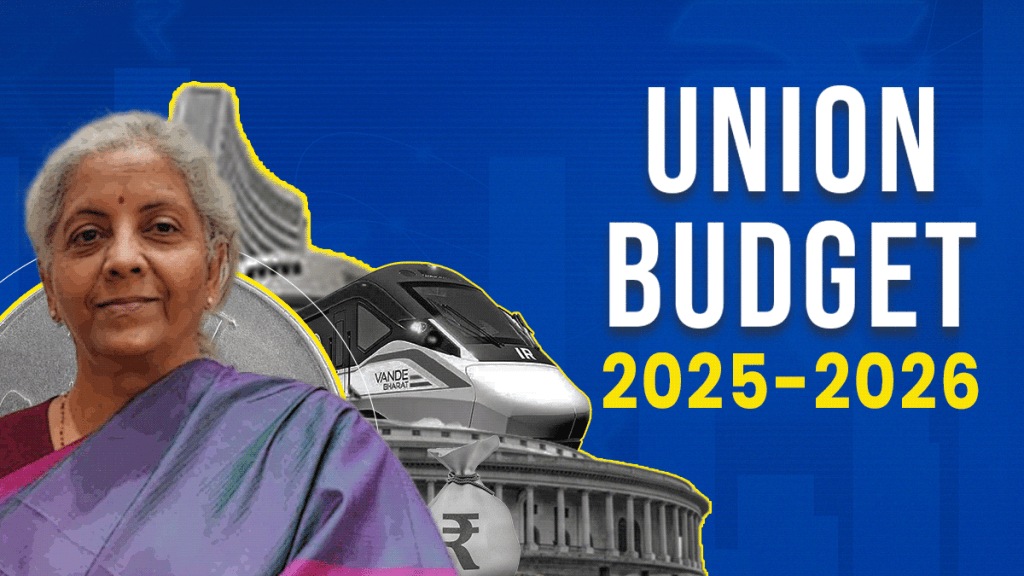Finance Minister Nirmala Sitharaman is set to present her eighth consecutive Union Budget today, marking the first full-year budget of the Modi government’s third term. This budget comes amid global geopolitical uncertainties and a slowdown in India’s economic growth, which has hit a four-year low. With the government’s ‘Viksit Bharat’ vision at the forefront, the Budget is expected to focus on strengthening India’s manufacturing sector, infrastructure, and job creation. Fiscal prudence will remain a priority, balancing growth-oriented spending with responsible deficit management. As India navigates a challenging global environment, Sitharaman’s Budget will play a pivotal role in shaping the country’s economic trajectory for the coming year.
- Union Budget 2025-26 Presentation Details Union Finance Minister Nirmala Sitharaman will present the Union Budget 2025-26 in Parliament at 11:00 AM on Saturday.
- What is Budget? Before delving into economic details, let’s first understand the Budget. Simply put, it’s a financial report where the government shares its income, expenditure, and borrowing with Parliament and the public. It reviews the past year’s finances and estimates income, spending, and borrowing for the upcoming year.
- When and where to watch: For LIVE updates, tune in here:
- YouTube: Stream Live
- X (Formerly Twitter): Follow on X
- Facebook: Follow on Facebook
- What Impact Will the Budget Have on the Economy? A Union Budget shapes a nation’s economy through taxation and government spending. Adjusting tax rates can stimulate economic activity, create jobs, and potentially increase revenues, even with lower rates. Strategic spending signals government priorities, such as corporate tax cuts and infrastructure investment. However, past efforts to boost private sector investment have fallen short due to weak consumer demand. Given these economic challenges, the government may prioritize increasing household consumption, which could, in turn, drive business investment. A balanced budget approach, focusing on both business incentives and consumer demand, is crucial for sustainable economic growth and long-term stability.
- Economic Survey Insights The Economic Survey 2024-25 projects India’s GDP growth for FY26 at 6.3-6.8%, with a focus on domestic growth over exports. Achieving the ‘Viksit Bharat’ goal by 2047 requires 8% annual growth, a 35% investment rate, and advancements in manufacturing, AI, and biotechnology. Key insights include global trade shifts benefiting India, steady economic growth despite uncertainties, and rising consumer demand, expected to reach 61.8% of GDP in FY25. While inflation is moderating, food prices remain a concern. The survey emphasizes deregulation to reduce business costs, boost employment, and attract investment, while highlighting infrastructure gaps and urging reforms to sustain long-term economic momentum.
- What’s on the Agenda? The Budget Session 2025 will prioritize significant legislative measures. Besides financial deliberations, key Bills are set to be introduced and passed, including:
- Banking Laws (Amendment) Bill, 2024 – Proposes reforms to enhance banking regulations and supervisory mechanisms.
- Railways (Amendment) Bill, 2024 – Aims to modernize railway operations and improve efficiency.
- Disaster Management (Amendment) Bill, 2024 – Focuses on strengthening disaster preparedness and response strategies.
- Budget Session Dates:
- First part: January 31 to February 13, 2025.
- Second part: March 10 to April 4, 2025.
- US Tariff Threat The newly elected US President Donald Trump’s warning of potential tariffs on countries like India adds complexity to Budget 2025. This development places additional pressure on the Indian government to balance domestic growth with managing global trade uncertainties. With India’s economy facing challenges such as slowing GDP growth and inflation concerns, the threat of trade barriers could impact key sectors, exports, and foreign investments.
- Stock Market Operations Despite being a Saturday, the Indian stock market will remain operational on February 1, 2025, to facilitate trading during the Union Budget 2025-26 presentation. Both the Bombay Stock Exchange (BSE) and National Stock Exchange (NSE) will conduct regular trading activities. Although Indian stock markets typically close on weekends, this special trading session will allow investors to react promptly to budget announcements and policy decisions.

